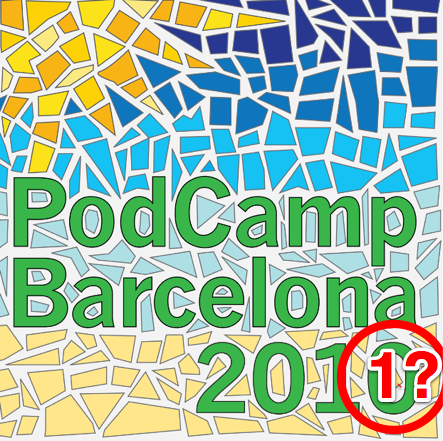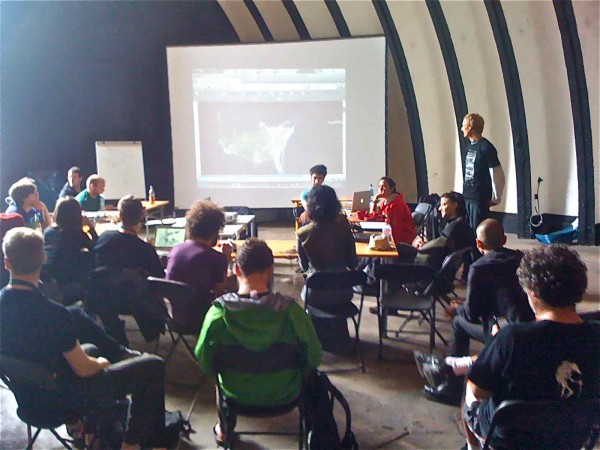I wrote the piece below for the “Hacking for Change” mission on Edgeryders, here’s the “mission brief”:
2011 was the year people across the world took to the streets, and the Internet, to try to change political systems they were unable to affect through the the “normal” channels of their respective countries, be they “democracies” or “dictatorships”. From the Arab Spring to the Indignados of Europe and the Occupy movements of the US and elsewhere, people of all ages, completely disillusioned with traditional politics, began to take their collective futures into their own hands through direct action, decentralised methodologies influenced in part by the free software movements, and hacking. Some of them actually hack: they develop and deploy technologies to enable dissenting citizens to communicate and mobiize on the issues they care about.We’re creating situations that are impossible for governments to ignore, both in the street and online, but while some of those in power are taking note and trying to engage, traditional politics is responding in a traditional way, discrediting activists and looking for ways to block these movements and methods. Are you going to be on the sidelines dealing with the results or going to join in & hack the street?Investigate and report about a hacktivist project. What problem is it tryng to solve? Do you think it is making a contribution? Why?Some examples of projects which could be described as hacktivist are:ChokePoint Project is a global censorship monitoring platform based on reliable data, visualised in a very accessible manner and featuring contextual information for each country. It will show up to date information for censorship circumvention and the legal implications involved.GlobaLeaks is the first open-source whistleblowing framework. It empowers anyone to easily set up and maintain a whistleblowing platform. GlobaLeaks can help many different types of users: media organizations, activist groups, corporations and public agencies.Tor is free software and an open network that helps you defend against a form of network surveillance that threatens personal freedom and privacy, confidential business activities and relationships, and state security known as traffic analysisTelecomix is a cluster of internet and data loving bots and people, always striving to protect and improve the internet and defend the free flow of data. Telecomix, just like the Internet, knows no borders technological or territorial.I’m Getting Arrested is an app to alert your lawyer, loved ones, etc … that you are being arrested with a click.Sukey – Is an app to keep demonstrators safe, mobile & informedLike all missions, this one is worth 250 reputation, but extra points are awarded for great content. Start now! Or get the bigger picture on We, the people.Big big thanks to Cataspanglish for his invaluable help with this mission!2011 was the year people across the world took to the streets, and the Internet, to try to change political systems they were unable to affect through the the “normal” channels of their respective countries, be they “democracies” or “dictatorships”. From the Arab Spring to the Indignados of Europe and the Occupy movements of the US and elsewhere, people of all ages, completely disillusioned with traditional politics, began to take their collective futures into their own hands through direct action, decentralised methodologies influenced in part by the free software movements, and hacking. Some of them actually hack: they develop and deploy technologies to enable dissenting citizens to communicate and mobiize on the issues they care about.
We’re creating situations that are impossible for governments to ignore, both in the street and online, but while some of those in power are taking note and trying to engage, traditional politics is responding in a traditional way, discrediting activists and looking for ways to block these movements and methods. Are you going to be on the sidelines dealing with the results or going to join in & hack the street?
Investigate and report about a hacktivist project. What problem is it tryng to solve? Do you think it is making a contribution? Why?
Some examples of projects which could be described as hacktivist are:
ChokePoint Project is a global censorship monitoring platform based on reliable data, visualised in a very accessible manner and featuring contextual information for each country. It will show up to date information for censorship circumvention and the legal implications involved.
GlobaLeaks is the first open-source whistleblowing framework. It empowers anyone to easily set up and maintain a whistleblowing platform. GlobaLeaks can help many different types of users: media organizations, activist groups, corporations and public agencies.
Tor is free software and an open network that helps you defend against a form of network surveillance that threatens personal freedom and privacy, confidential business activities and relationships, and state security known as traffic analysis
Telecomix is a cluster of internet and data loving bots and people, always striving to protect and improve the internet and defend the free flow of data. Telecomix, just like the Internet, knows no borders technological or territorial.
I’m Getting Arrested is an app to alert your lawyer, loved ones, etc … that you are being arrested with a click.
Sukey – Is an app to keep demonstrators safe, mobile & informed
Like all missions, this one is worth 250 reputation, but extra points are awarded for great content. Start now! Or get the bigger picture on We, the people.
Big big thanks to Cataspanglish for his invaluable help with this mission!
HACKING FOR CHANGE: CHOKEPOINT PROJECT – WHO WATCHES THE WATCHMEN?
February 6 2012

During the uprising in Egypt, in January 2011, the order was given to “turn off” the Internet, sending shock-waves around the world. Murmurs were heard of US security agencies and American politicians asking for access to a similar kill switch.
Since then Internet access has been manipulated in many other countries where citizens have sought to bring down regimes, while in other places there are ongoing restrictions to free Internet access, despite this access being declared a fundamental human right by the United Nations.
These actions force us to look at who owns The Internet?
The ChokePoint project is a response to the Arab Spring uprising where a group of us wanted to take action and do something useful. The project is made of 2 parts, one being a near real-time internet censorship monitoring platform. This includes a data collection part and a visualization element which is a public facing site. We will be able to monitor whether connections have been cut in specific regions of countries, helping alert journalists and activists. The platform will be based on reliable data, visualized in a very accesible manner, featuring contextual information for each country. This system could also help in natural disaster situations by detecting the extent of damage done. See a prototype here: http://euhackathon.chokepointproject.net/
At the same time we are developing an educational project to inform politicians, NGO’s, journalists, researchers, students and other interested parties about the realities of how the Internet works, including its underlying structures, through workshop modules aimed at the non-geek and focussed on participation.
When we began the project, we didn’t know the real scope of what we were trying to achieve, but it quickly became apparent that we didn’t have the skills needed to carry it out. We reached out through our networks and were lucky to find some very talented, very committed people and gained some buzz by winning the Next Idea category at Ars Electronica.
Some of the team came together at the Chaos Communication Camp in August to work on the system architecture and subject it to the scrutiny of people from around the world working on similar projects. The architecture is vital in this project because it is necessary to get real data from users worldwide, often in hostile environments and without compromising their security. Again the network responded and we made some very important contacts. Since then we’ve been working on the dataviz as well as doing outreach with politicians, hackers, journalists, bloggers, organisations, rights groups and anyone else with an interest. The prototype platform was developed at the the first EU Hackathon at the EU parliament in Brussels in November, and we’ve done workshops & presentations and attended many events. Oh yes, and started to work on fund-raising as we’ve been doing this in our “spare time” up until now.
Ironically, I’m not a “hacker” at all, if by hacking we’re talking about technical skills. But I do have a JFDI (Just F***ing Do It) mentality which I guess is similar to hacking. The situation now is probably worse than when we began the project so doubtless the knowledge aquired and contacts made so far will be even more useful in the future.

















